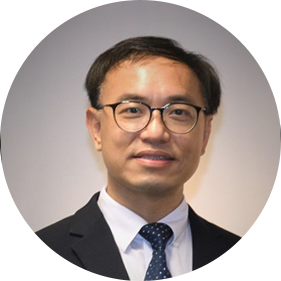
Prof. Kenneth Fong
Professor
The Hong Kong Polytechnic University
Editor-in-Chief
Hong Kong Journal of Occupational Therapy (HKJOT)
Topic: Translational research in Assistive Technology:
From engineering to bedside
Abstract:
Translational research in assistive technology is the interface between basic sciences and engineering to clinical application, that is, from upstream/ midstream to downstream with the endpoint of production of a promising new treatment that can be used clinically or commercially in the market. With the rapid advancement of technology, occupational therapists now and in the future will use advanced equipment to make therapists more effective in their treatment or training. There are two categories of these advanced technology products – therapists recommend users to use assistive tools to address clients’ difficulties in daily functioning and enhance their participation in self-care, work and leisure activities, or as a piece of training device in their treatments. In this presentation, Kenneth Fong will present translational research in assistive technology with few examples from mirror neurons to the use of prognostic neurophysiological biomarkers and ambient motion capturing in motor rehabilitation as well as potential use in future brain-computer interface system and explain how these devices are of great clinical benefit to our clients such as patients in the ageing population.
Speaker Profile:
Kenneth Fong is Professor in the Department of Rehabilitation Sciences, The Hong Kong Polytechnic University (PolyU), currently the coordinator of assistive technology laboratory in Department of Rehabilitation Sciences, management committee member of the Research Institute for Artificial Intelligence of Things (RIAIoT) in PolyU, chairman of the University Ethics Committee, programme leader of BSc(Hons) in Occupational Therapy, and Editor-in-Chief, Hong Kong Journal of Occupational Therapy. He has been awarded several times the teaching awards from the department and the Faculty of Health and Social Sciences. In the last 10 years, he has received many competitive public research grants as chief investigator, among them, the Research Impact Fund (RIF), General Research Fund (GRF), Hospital and Medical Research Fund (HMRF), Innovation and Technology Fund (ITF), etc. from the government. In the last couple of years, his undergraduate students also got many awards in design of assistive technology products at the Global Student Innovation Challenge (gSIC), iCREATe, in different countries.
